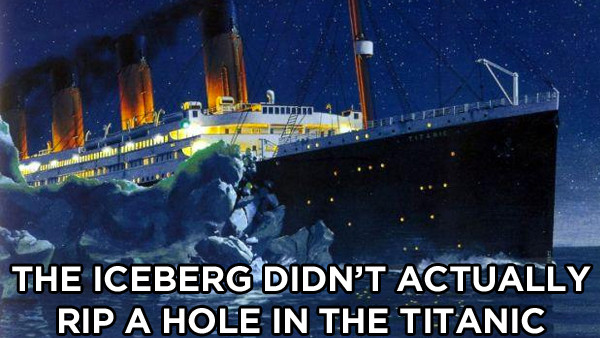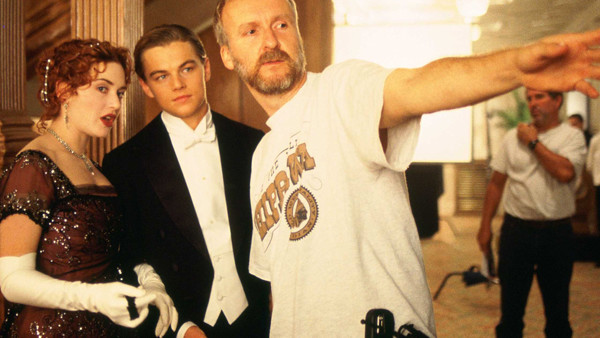10 Ways You Think About The Titanic All Wrong
Big, cocky ship hits ice? Yeah, it's not quite that simple.

It's a story that has grown so big in the cultural psyche that it's now hard to imagine something so horrifically striking actually happened (to the point where some millennials were shocked to discover it wasn't just a movie they'd "never seen"). tTe sinking of the Titanic, hitting an iceberg late on 14th April 1912 and going down in just over two hours, taking 1500 people with her, has been retold again and again in all forms of media, to the point its even got its own conspiracy theory.
It's not hard to see why. There's countless individual stories of the survivors, while the haunting sight of the vertical ship crashing down is impossible to shake. The whole event has evolved to signify a turning point for class-culture, a microcosm of injustice. Titanic is, in the most regrettable terms, an icon.
However, so much of the Titanic mythology isn't exactly true. Up until the wreck was found in 1985, which allowed engineering details to be retroactively extrapolated, the entire night was told based on unreliable accounts from people who's primary focus was survival, not taking in every detail. That's where you get the grand-yet-conflicting accounts of the band playing Nearer To My God Than Thee as a finale (they didn't, although them playing until the last is true) or Captain Smith's alternately heroic or cowardly last moments, widely known as fictitious application to other figures.
But there's more to it than that. In fact, some of the biggest Titanic "facts" are wrong, or at the very least major misunderstandings.
Honourable Mention - James Cameron's Movie Was Actually Pretty Accurate

Because it's ostensibly a fictitious romance, James Cameron's Titanic often gets widely dismissed as a heavily inaccurate account of the ship's final days. And while you'd be right to be sceptical about the lookouts being distracted by an amorous cross-class romance, much of how Cameron presents the sinking is pretty accurate. Elements surrounding Jack and Rose are obviously all fictitious, but the actual mechanics of how the ship went down were (for our understanding at the time) accurate.
In fact, there's an obscene attention to detail; various background events seen off to the side of Jack and Rose are actually extensive recreations of real accounts, mostly from Walter Lord's expertly researched A Night To Remember.